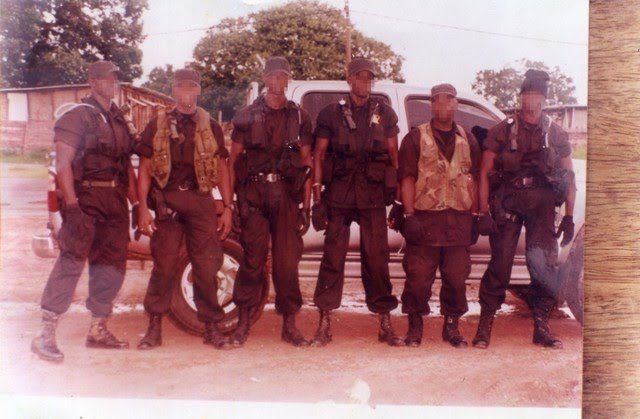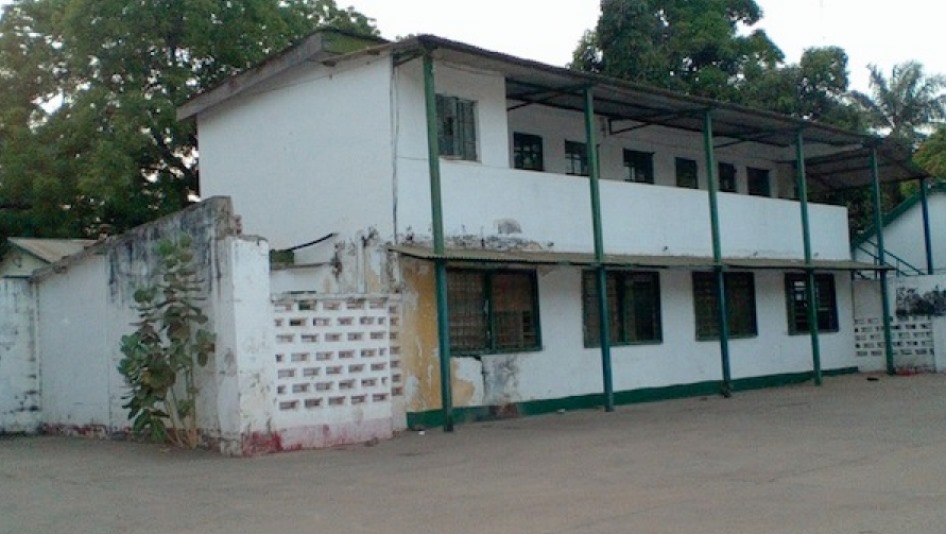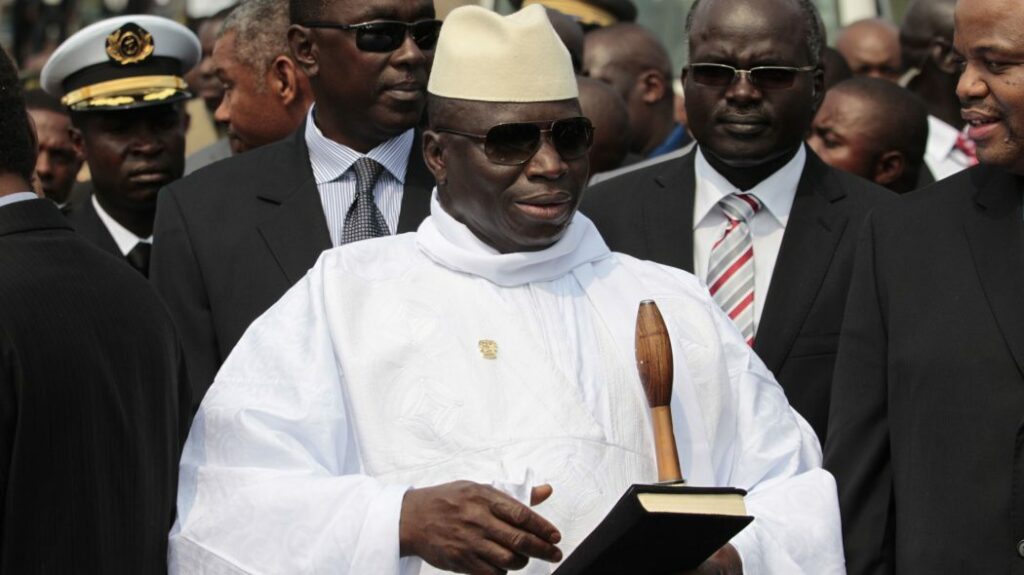
Life at the old Gambia Produce Marketing Board building. The most imposing colonial edifice left in Banjul, nothing good was entirely new except the everyday life of colonial order of repression occurred in private spaces featured an old way of life among the relics of a diary of corruption, and manipulation into doing evil acts of fire dragons along Marina Parade that housed the notorious National Intelligence Agency (NIA), was very brutal.
It is an endless torture like a flowing river. It is gradual destruction of humanity. It is a slow death. Since we were thrown there many detainees have died or incapacitated.
In addition, we don’t sleep at night because of the lice, fleas, ticks, bedbugs and vicious mosquitoes. They eat you alive.
In one of a series of twelve unfortunate conflicts with law enforcement agents on February 2, 2003, the law enforcement agents in my hometown of Jarra Sankwia in The Gambia, arrested and tortured me about a lead article I had published in my newspaper The Independent.
I was bundled into the back of a car and driven to the Banjul Police Station a few several hours after they had driven off with me in a Toyota Pick-up truck. The National Intelligence Agency also wanted to know if I had any idea of the allegedly seditious documents which they had taken from my house, and if I have any relationship with the opposition, later they seized my laptop from my office and documents found in apartment.
The story, an all-too-common one in Africa, revealed that my country’s president, Yahya Jammeh, was the owner of a new five-star hotel and that several of his cronies were among its secret shareholders. Those proxies of Yahya Jammeh and shareholders of Kairaba Beach Hotel mentioned in the Independent were businessman Amadou Samba, Secretary and Advisor to the President Baba Jobe, Central Bank Foreign Exchange Manager Lang Conteh and Tarik Musa of T.K Motors.
The NIA and the Serious Crime Unit of the police demanded that I write a statement disclosing my sources and threatened me with jail if I refused. I did so and was held in solitary confinement. I was stripped naked and kept in a dank cell until my release three days later beyond the constitutional limit of detention.

This was nothing new. I have been detained and interrogated in The Gambia more than twelve times during Yahya Jammeh’s regime
My experience illustrates a fraction of the suffering, denigration, humiliation, physical and mental abuse of the victims and survivors at the old Gambia Produce Marketing Board offices housed the notorious National Intelligence Agency torture chambers and other places of detention during Jammeh’s regime.
I will attempt to describe the scenario thus: I was ordered to strip naked and sit down on a chair. My hands were tied to the chair and I could not move at all. From the moment the brutal interrogation started, everything in the room changed and the language of coercion and violence was introduced.

My incarceration at the old GPMB headquarters has yet to be erased from my mind. I was in a dark cell all night. The next morning, I was escorted while and upon passing several offices around I was taken into a room, put on a seat and there I found myself in front of nine mean-looking guys.
“Tell us about yourself, your friends and your sources,” the interrogation began. Questions and more questions for hours without end were followed by insults with slaps with threats of burning with cigarette ends.
My screams did not help and as they continued brutalising me, they were insisting that I reveal my sources, or they would kill me. After collapsing due to exhaustion, I was returned to the basement cells. The agents were instructed to continue with extracting evidence for prosecution.
The interrogations continued relentlessly and only the methods varied. At one point, they would remove pistols and threaten to shoot me. There were screams from the neighboring rooms with men screaming at the tops of their voices. It was a total nightmare.
The next day I guess it was February 3 that someone came and opened the cell door. I was hungry and fatigued. Nobody was talking to me all the time. I was taken upstairs. It was bright and sunny. There were about twelve men and a woman sitting in a horseshoe formation. I was seated in the middle of the room in front of them.
They started throwing words wildly and at random. This was an uncoordinated way of interrogating people. One of the questions from (agent) Bamba Manneh was “Tell us Mr your sources and why are you asking the owner of the hotel?”
After those wild questions I got an opportunity to speak. I told them that its unethical for journalists to reveal their sources.
This was the first time I was slapped by someone from behind me. He asked, “Who are you not to reveal your sources here?”I didn’t answer that.
Salimina Drammeh rose and walked to where I was sitting and pretended to slap me. Salimina was my senior at Pakalinding Primary School. He is from Kanikunda less than a kilometre to my village, Jarra Sankwia.
I raised my hand to protect my face. The man behind me slapped me again. At that time Bamba Manneh challenged me to stand and fight saying that if I could not fight, I would be taken back to the cells. I stayed in the cells and I was not given any food.
The following day I was taken back to the interrogation room and given some pieces of paper to write a statement. They asked me to reveal my sources. I refused them and complained that I had not eaten and demanded to be given food. I was given some bread and fish balls (bullet) sold outside of the NIA.
After that I was taken down to a cell which was damp. I started feeling dizzy and I fell down in my cell. While in that state I heard the noise of a woman who was in high heels walking back and forth and shuffling some papers. My body was very cold.
In the morning I was taken up again to a smaller, slightly darker room where I met Munirou Darboe (a native of Jarra) and another torturer known as Paul Mendy. They challenged me saying that I was involved in covert activities intended to overthrow the government.
I denied being a rebel or having any potential to overthrow the government. At this stage Salimina walked out of the room and Munirou Darboe told me, “you should desit from provoking the government”.
Immediately after, a bleached woman with a Wolof accent, Saffie Njie, came to me and said: “you have not eaten. Why should you torture yourself? You have a family and here you are protecting people who cannot assist you”.
I asked her, “Who are you? A policewoman?”
“It does not matter,” she replied, “I want to assist you.” She started fondling me everywhere and telling me that she could assist me get out of the place if only I reveal my sources. She continued fondling me until I pushed her away.
Abdoulie Sey, my editor-in-chief was arrested and detained at the Bundung Police Station in connection with our lead story published “Who Owns Kairaba Beach Hotel?”

It was the beginning of an endless journey of torture. I was continually tortured psychologically, physically and mentally with all the crude methods one can think of. It was a very cold cement floor in the dungeons, very lonely, in fact lonelier than a grave, horrifying and scaring. Whenever they wanted to torture me, I would be blindfolded, whisked up to a room. This is where the torture took place.
My torturers would strip me naked and handcuff me before starting their game. “You dog?”, they’d yelled.
At the time, my father was ailing in Jarra Sankwia and on learning of my arrest and fully aware of the consequences, the old man became sicker.
All the NIA torture survivors narrate how they heard mysterious noises of a lady wearing high-heeled shoes walking back and forth on the floor above the torture chambers. There were also noises of pulling and pushing of furniture, shuffling of papers and cries of grown up men.
Saffie Njie, a bleached pretty woman speaking in English and Wolof accent, was brought to the cell in the basement. I was brought to the open space between the toilet and the control room.
She started interrogating me in a persuasive manner urging me to reveal my sources. She fondled me and taunted me. I was later taken to a basement cells where for about two and a half hours I was subjected to inhuman and degrading torture.
However, I was later released with a strict warning that I would be shot on sight should I disclose what I underwent especially so to the media. A stern warning from my Jarranka brother Munirou Darboe.
They drove me in a Land Rover to Banjul Police Station where I found Attorney General and Minister of Justice, Sheikh Tijan Hydara and Inspector- General of Police, Landing Badjie. They granted me unconditional released. They needed not to carry out further investigation to identify and charge me and Abdoulie Sey for Sedition and criminal libel.
Privately, the Attorney General suggested if I can meet with Yahya Jammeh. I humbly refused. However, no further prosecution was carried out and although there has been evidence to show otherwise that Yahya Jammeh and his close associates really owned the Kairaba Beach Hotel.
By Alagi Yorro Jallow











Recent Comments